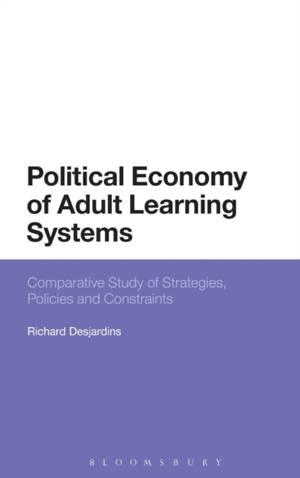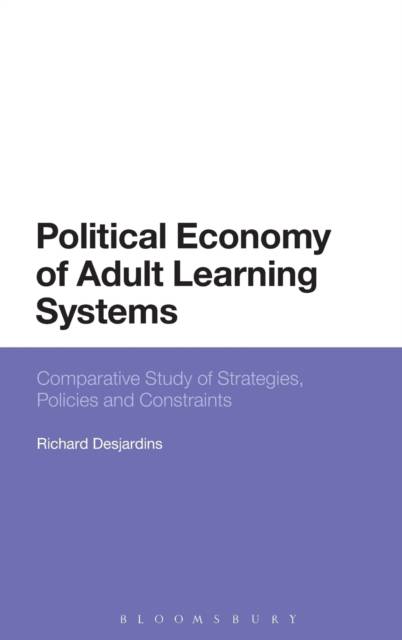
Bedankt voor het vertrouwen het afgelopen jaar! Om jou te bedanken bieden we GRATIS verzending (in België) aan op alles gedurende de hele maand januari.
- Afhalen na 1 uur in een winkel met voorraad
- In januari gratis thuislevering in België
- Ruim aanbod met 7 miljoen producten
Bedankt voor het vertrouwen het afgelopen jaar! Om jou te bedanken bieden we GRATIS verzending (in België) aan op alles gedurende de hele maand januari.
- Afhalen na 1 uur in een winkel met voorraad
- In januari gratis thuislevering in België
- Ruim aanbod met 7 miljoen producten
Zoeken
Political Economy of Adult Learning Systems
Comparative Study of Strategies, Policies and Constraints
Richard Desjardins
Hardcover | Engels
€ 296,95
+ 593 punten
Uitvoering
Omschrijving
Based on comparative adult education statistics offered by the Organisation for Economic Co-operation and Development (OECD) Survey of Adult Skills (PIAAC) and country case studies, this book analyses the policies and structures that foster adult learning. It examines a variety of forms of adult learning, ranging from initial forms of post-compulsory education, such as upper secondary tracks and tertiary education, to firm training, compensatory adult education and learning for civic and leisure oriented purposes.
Throughout the book, adult learning systems are directly linked to a variety of structural and public policy frameworks using a comparative welfare state approach. Themes such as pathways to learning and transition systems, participation patterns in higher education and participation patterns in other organized forms of adult learning are covered. The countries discussed are the UK, the USA, Korea, Denmark, Finland, Norway, Germany and the Netherlands.
Situated at the intersection between scholarship and policy and using a mixed-methods approach, this title contributes fundamental insights into the further study of policies and structures related to alternative post-compulsory learning pathways.
Throughout the book, adult learning systems are directly linked to a variety of structural and public policy frameworks using a comparative welfare state approach. Themes such as pathways to learning and transition systems, participation patterns in higher education and participation patterns in other organized forms of adult learning are covered. The countries discussed are the UK, the USA, Korea, Denmark, Finland, Norway, Germany and the Netherlands.
Situated at the intersection between scholarship and policy and using a mixed-methods approach, this title contributes fundamental insights into the further study of policies and structures related to alternative post-compulsory learning pathways.
Specificaties
Betrokkenen
- Auteur(s):
- Uitgeverij:
Inhoud
- Aantal bladzijden:
- 288
- Taal:
- Engels
Eigenschappen
- Productcode (EAN):
- 9781474273640
- Verschijningsdatum:
- 12/01/2017
- Uitvoering:
- Hardcover
- Formaat:
- Genaaid
- Afmetingen:
- 155 mm x 234 mm
- Gewicht:
- 544 g

Alleen bij Standaard Boekhandel
+ 593 punten op je klantenkaart van Standaard Boekhandel
Beoordelingen
We publiceren alleen reviews die voldoen aan de voorwaarden voor reviews. Bekijk onze voorwaarden voor reviews.









